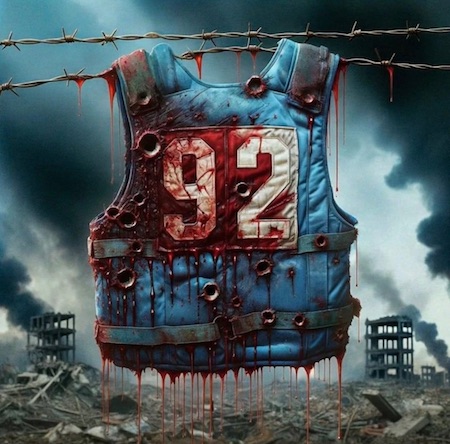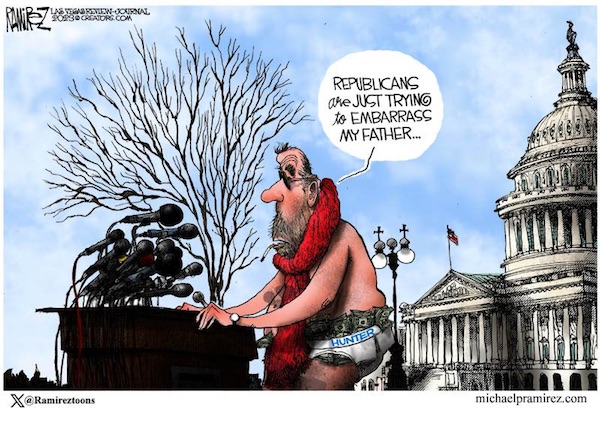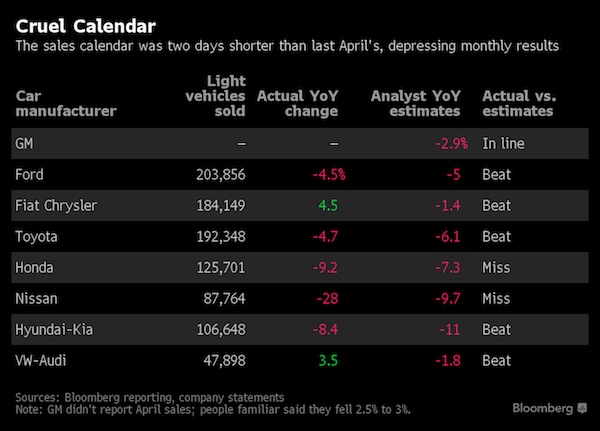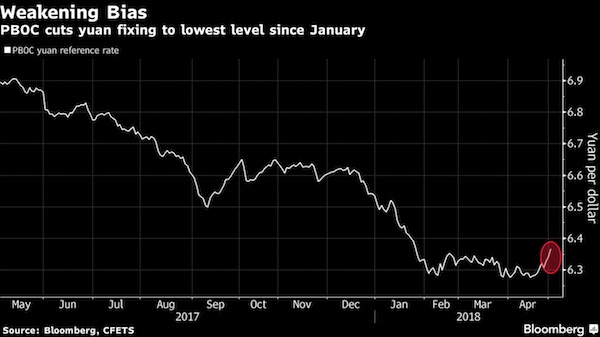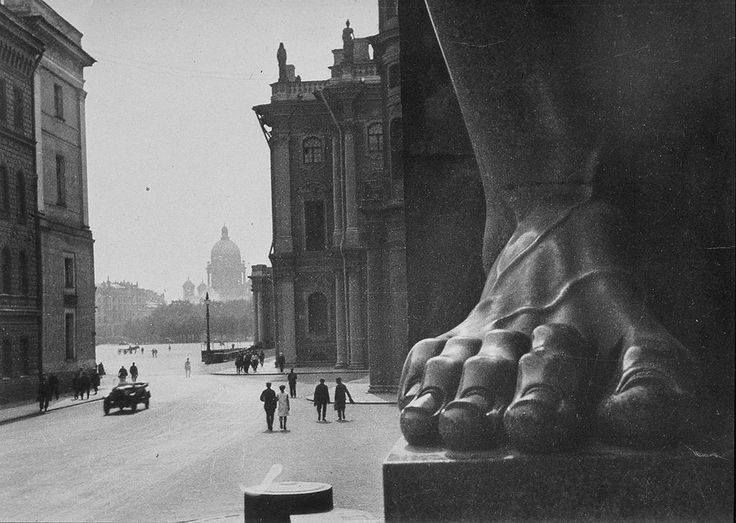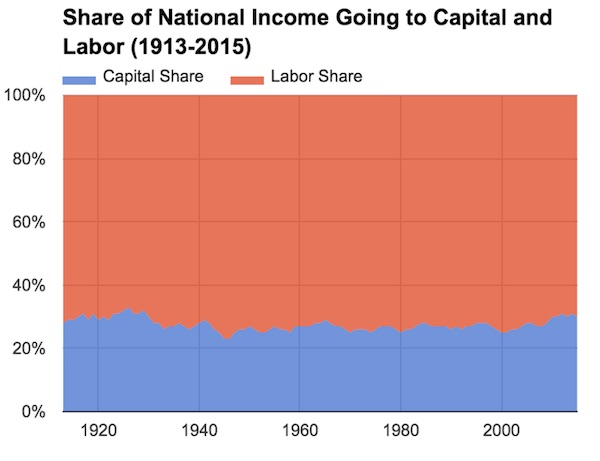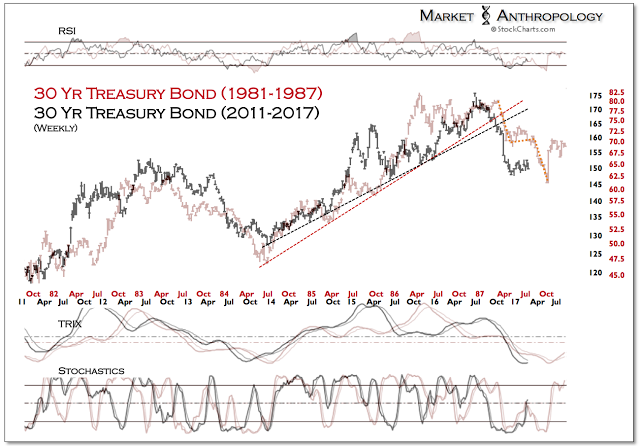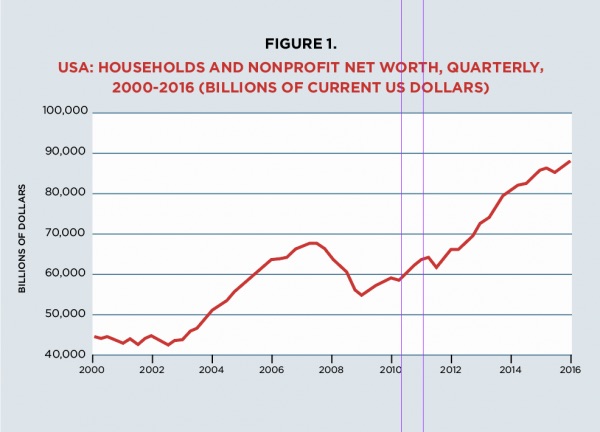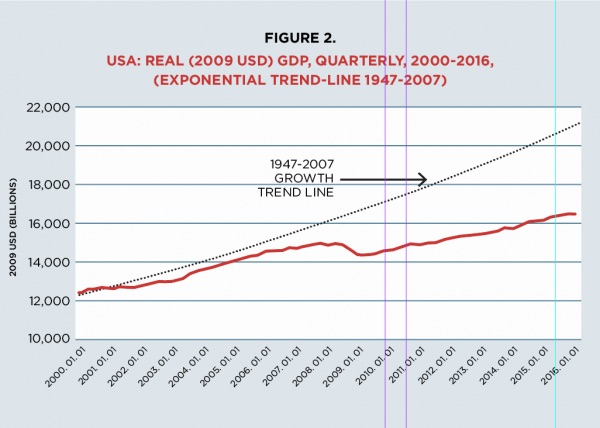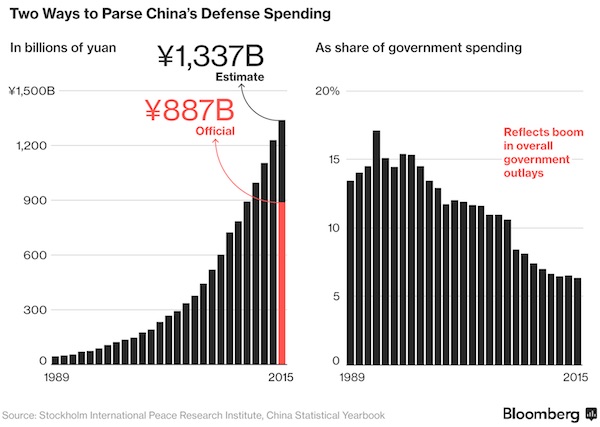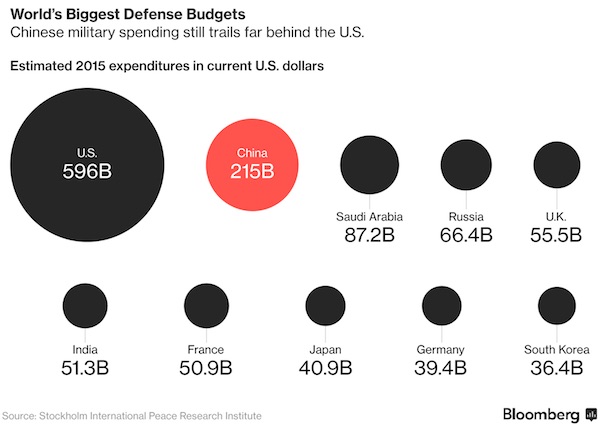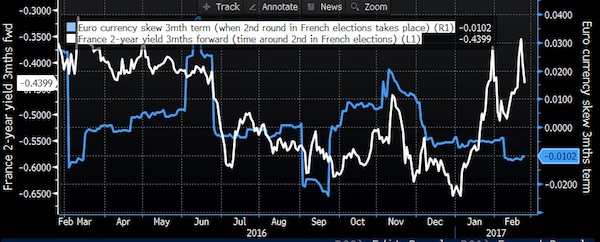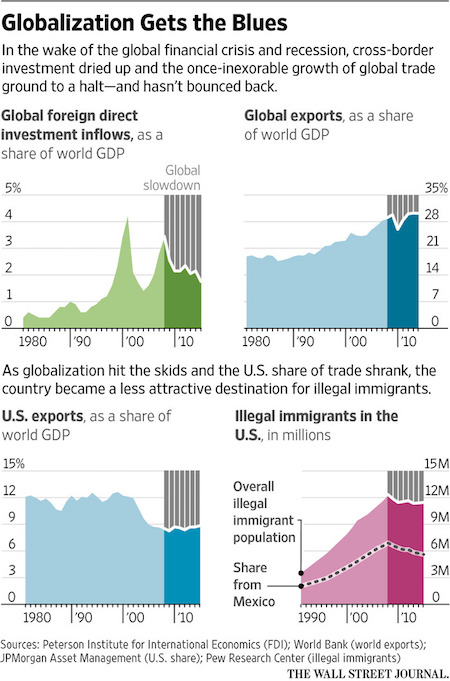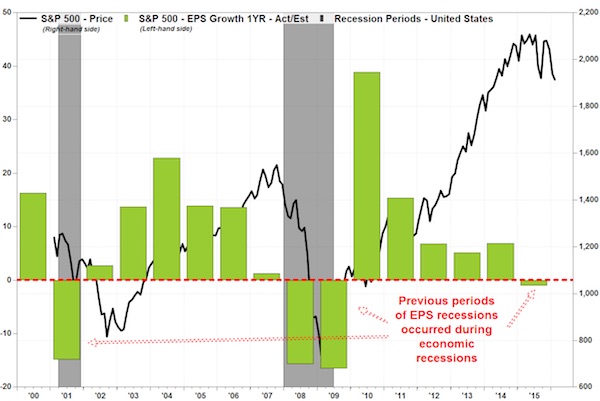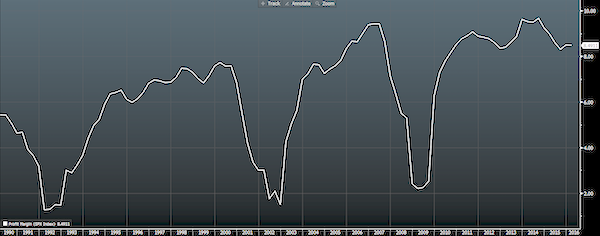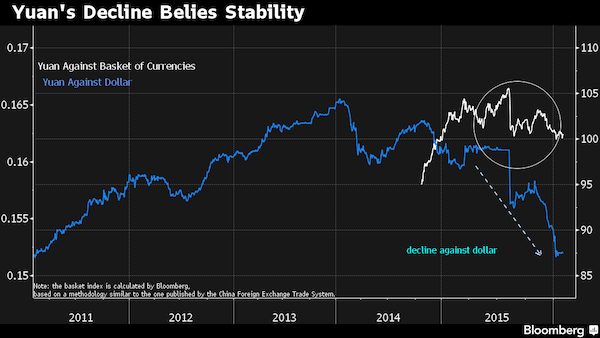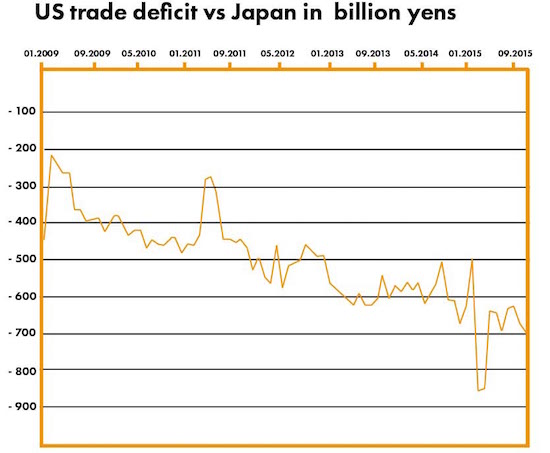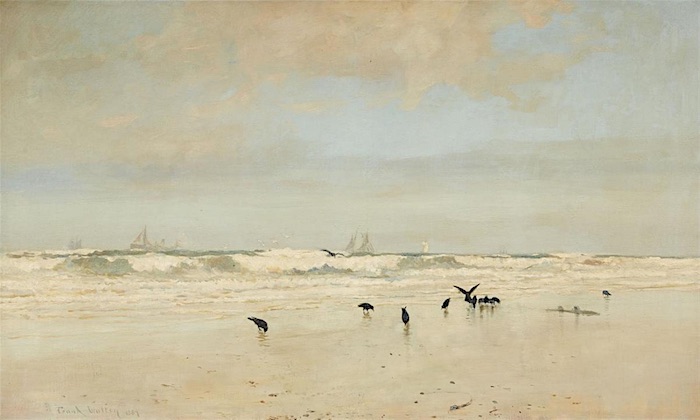
Frank Walton Crows on a beach 1884



Not only will the President of the United States be flying around on a $400 million jet paid for by Qatar, but don’t forget, our own US Attorney General Pam Blondi @AGPamBondi was once a registered foreign lobbyist on behalf of Qatar.
Blondi was compensated $115,000 per month… https://t.co/Woj6QEcdnO pic.twitter.com/F5ZiHIlj2X
— Laura Loomer (@LauraLoomer) May 11, 2025
The entire World’s a stage.
This one is wild – why would they even do this? pic.twitter.com/ZsVwXrbw1N
— Concerned Citizen (@BGatesIsaPyscho) May 11, 2025
Watters
I’m shocked that @FoxNews aired this and it shows the true independence of @JesseBWatters (you get big creds for raising this).
The $64K ? is what now @AGPamBondi … When will we see arrests of those who abused children? Even if it means exposing some of the biggest elites in… https://t.co/WMBhORPSCy
— General Mike Flynn (@GenFlynn) May 11, 2025
https://twitter.com/Megatron_ron/status/1921608285419143354
Biden
DOGE: This is insane. The moment Kamala Harris lost the election, Biden began sending Democrat-aligned NGOs & companies $1.3 billion per day, almost $100 billion before Trump took office. In the prior 15 years the same loan office gave out just $40 billion, just $8 million a day.… https://t.co/WR1PVJMtxG pic.twitter.com/mqHeLz6TWc
— @amuse (@amuse) May 11, 2025
The Gorgons were three female monsters in Greek mythology who could kill people just by looking at them. pic.twitter.com/91HGX6mYVa
— Chay Bowes (@BowesChay) May 11, 2025
Say one good thing about any of these men. pic.twitter.com/KUW9jLzUn7
— Chay Bowes (@BowesChay) May 10, 2025
Draino
President Trump is now calling the 21,000,000 illegal aliens in America an “invasion”
This is true
It’s also the constitutional basis required to suspend the writ of habeas corpus and mass deport them
He’s setting up the legal dominos pic.twitter.com/7jOxFBtTsZ
— DC_Draino (@DC_Draino) May 11, 2025
Logan
Very powerful testimony by Lara Logan…
We live in the age of information warfare, where propaganda is not simply a weapon, it is the entire field of battle. This is a war for our minds that is aided by advanced technology, and we have never been here not in all of human… pic.twitter.com/CbSrRuNmFV
— Camus (@newstart_2024) May 11, 2025


Bessent’s been busy. Just in: US to lower tariffs on China to 30%, China to lower tariffs on US to 10%, for next 90 days.
“..it’s important to understand how quickly we were able to come to agreement which were that perhaps the differences were not so large as maybe thought.”
• Bessent Says US, China Made “Substantial Progress” On Tariffs Deal (ZH)
Just hours after Trump praised China tariff talks, saying that “great progress” had been made and that a “total reset” of relations was on the table, the second day of trade negotiations between the US and China concluded moments ago, and there was more good news: Treasury Secretary Scott Bessent and US Trade Representative Jamieson Greer said that the US and China made “substantial progress” adding that they will share more details on Monday. The announcement followed hours of meetings between Bessent, Greer and Chinese Vice Premier He Lifeng. The talks were hosted by the Swiss ambassador to the United Nations, whose residence was used as the venue for the two countries’ teams.
[..] Bessent said that “talks were productive” and involved China’s Vice Premier, two Vice Ministers who were integrally involved, Ambassador Jamieson and myself.” Bessent said that he “will be giving details tomorrow.” “I spoke to President Trump, as did Ambassador Jamieson last night, and he is fully informed of what is going on. There will be a complete briefing tomorrow morning.” Separately, USTR Jamieson Greer said that “it’s important to understand how quickly we were able to come to agreement which were that perhaps the differences were not so large as maybe thought.””That being said, there was a lot of groundwork that went into these two days… we’re confident that the deal we struck with our Chinese partners will help us to resolve, work toward resolving that national emergency.”
https://twitter.com/EricLDaugh/status/1921599107841339899?ref_src=twsrc%5Etfw%7Ctwcamp%5Etweetembed%7Ctwterm%5E1921599107841339899%7Ctwgr%5E7eaffc426428da9e8d12261d96b5526084e8e877%7Ctwcon%5Es1_c10&ref_url=https%3A%2F%2Fwww.zerohedge.com%2Fpolitical%2Fbessent-says-us-china-made-substantial-progress-deal-after-very-constructive-2-days
Tensions between the world’s two biggest economies reached a new high point after President Donald Trump steadily increased tariffs on Beijing to 145%. The duties are supposed to address China’s role in the fentanyl trade, its massive trade surplus with the US, and respond to Beijing’s retaliatory measures imposed after Trump’s opening salvo. China in response increased its tariffs on US goods to 125%. Looking forward, however, Goldman expects a substantial drop in tariffs, expecting them to be cut by at least a half.
The tariff tit-for-tat led to a standoff between the world’s two largest economies, with neither side wanting to budge and no off-ramp in sight; however amid the economic slowdown, both sides acknowledged a reduction in tensions and tariffs is necessary and public talks were announced.

China is allergic to unemployment. They’d rather keep the production lines open and sell the products, without the high end labels, for 10-20% of the original price.
• President Trump’s Trade Strategy with China is Crushing Beijing (CTH)
President Donald Trump is confronting the dragon behind the panda mask with precision. It’s very obvious the prior reconnaissance, trade probes and tariff tests of ’17, ’18, ’19, are paying dividends. President Trump has cut off the transnational shipping lanes by globalizing the tariffs against China. Beijing is in a forced holding pattern waiting to see the outcome of Southeast Asia and European trade agreements. Having spent some serious time in the field in advance of ‘Liberty Day’ all of my contacts have the same message; China is trying to find position. In a little reported reality, in order to offset the problem, many Chinese manufacturers have actually continued the production of several branded product lines (very well-known and established brands) despite the absence of orders for the finished goods from the companies.
Several shipments of those finished goods have started to arrive at China-partnered ports. This is very interesting, because it may lead to market dumping of a higher quality product than most anticipate. Within the apparel sector, ASEAN consumers cannot afford the fashion branded product at the prices determined by the actual brand owners. However, there is now a strong likelihood -based on what is being reported by the receivers- that the product itself will be marketed -likely dumped- without the brand label. This is actually high-quality apparel distributed for a fraction of the price of the brand. I’ll be getting more details on this soon, however, it looks like the broad outlines are verified by multiple sources. I’ll use some fake names to explain. China is sending finished “branded” goods to the Philippines, without labeling. The receiving company awaits instructions.
Ex. “Lululemon” products arrive finished, but missing labels – the product is identical, but the IP is now stripped. The product, a summer or fall lineup, is then rebranded “Opal” apparel (fake name example) made in Philippines, packaged in a similar high-end fashion and shipped to USA where a new -mostly online- branded and marketed store sells the items. The marketing is done through a massive purchase of digital ad space on social media, with big incentives for fashion influencers. The current holding point (screwing up the works for Beijing) is the unknown future U.S. tariff rate against Philippines; but the manufacturing and subsequent inventory buildup is happening. I am told this same process is happening in small durable goods, albeit at a slower pace. The Chinese delegation currently running through Europe, is prepositioning for a sector-by-sector severely discounted manufacturing operation.
The goal is to secure purchase contracts at prices that simply cannot be ignored given the scale of the increase in profit margin being offered. This is not a black-market operation per se’, this is a dark market strategic play with massive financial incentives for aligning. Meanwhile, Treasury Secretary Scott Bessent and U.S. Trade Representative (USTR) Jamieson Greer have begun meetings in Geneva with a Chinese delegation led by Vice Premier He Lifeng. A motorcade of black cars and vans was seen coming and going from the home of the Swiss ambassador to the United Nations. Talks between the U.S. and China are being moderated/facilitated by the Swiss (think finance sector motive) and taking place in the 18th-century “Villa Saladin” overlooking Lake Geneva. The optics of the discussion are grand; the estate was given to the Swiss in 1973.
Playing the role of Panda, Mrs Sun Yun, director of the China program at the Stimson Center, said it is the first time Lifeng and Bessent have talked. However, given the position of President Trump comfortably willing to wait-out the dragon thrashing, panda Sun doubts the Geneva meeting will produce any substantive results.
BEIJING (Reuters) -“China’s factory-gate prices posted the steepest drop in six months in April while consumer prices fell for a third month, underlining the need for more stimulus as policymakers grapple with the economic toll from a trade war with the United States. A prolonged housing market downturn, high household debt and job insecurity have hampered investment and consumer spending, keeping deflationary pressures alive. Now, the economy is also facing increasing external risks from trade barriers. […] “Even if China and the U.S. can make progress and cut tariffs in trade negotiations, tariffs are unlikely to go back to the level before April,” Zhang added. “More proactive fiscal policy is necessary to boost domestic demand and address the deflation problem.”
[…] The Chinese government is implementing a wide range of measures to stimulate consumption across different sectors and last week announced a raft of stimulus measures, including interest rate cuts and a major injection of liquidity. As the trade war between the world’s two largest economies weighs on exports, China’s retail giants, including JD.com and Alibaba-owned Freshippo, have initiated measures to help exporters pivot to the domestic market. That could further depress prices as business and consumer confidence remain subdued due to the uncertain outlook. (read more)”
Beijing does have a consumption base within China; however, that consumption is dependent on income. If the Chinese factory workers are not working, they do not have income to spend; the proverbial catch-22. Hence, the continued manufacturing, shipping and inventory buildup being described as arriving in ASEAN nations (Vietnam, Philippines, Malaysia, Cambodia, Thailand, etc.). I suspect we are about to witness the largest global dumping operation in the history of consumer goods.
https://twitter.com/Jkylebass/status/1921510619410223447

As per today.
• Trump Announces Order To Reduce Prescription Drug Prices By Up To 80% (ZH)
President Donald Trump announced late on May 11 that he would sign an executive order which would reduce prescription drug prices in the US by 30% to 80% “almost immediately” while also raising drug prices “rise throughout the World in order to equalize and, for the first time in many years, bring FAIRNESS TO AMERICA!” To achieve that, Trump would institute what he called a most-favored nation policy “whereby the United States will pay the same price as the Nation that pays the lowest price anywhere in the World.” Healthcare costs in the US “will be reduced by numbers never even thought of before,” he said. Trump’s Truth Social post, which was preceded by an earlier one that promised as one of “most important and impactful” statements he has ever issued, didn’t detail how the order would work.

He also didn’t specify potential limits on the policy, such as whether it would apply only to government programs such as Medicare or Medicaid, if it would be limited to certain drugs or categories of drugs or if the White House sees a way to apply this more broadly. Asian pharmaceutical companies fell in early Monday trading. Japanese drugmaker Chugai Pharmaceutical Co. dropped as much as 7.2%, the most in a month, with peers Daiichi Sankyo and Takeda Pharmaceuticals losing around 5%. In South Korea, SK Biopharmaceuticals Co., Celltrion Inc. and Samsung Biologics Co. all fell over 3%. Americans pay the most in the world for medicines, fueling innovation and driving the growth of the pharmaceutical industry. Drugmakers have said revamping the system will slash revenue and stifle the development of breakthrough therapies that have the potential to lengthen and improve lives.
Trump cited the industry’s argument, but said it meant that “the ‘suckers’ of America” ended up bearing those costs “for no reason whatsoever.” As Bloomberg notes, the US government already negotiates prices for some of the highest-cost medicines used in Medicare health insurance under the Inflation Reduction Act, which passed in 2022 under former President Joe Biden, with more slated to be added every year. The first two rounds of drug price negotiations haven’t included physician-administered drugs, but the next round might. Billionaire hedge fund manager Bill Ackman suggested Trump might have been inspired by an idea he floated on X in March, when he said the best way to reduce US drug prices “is to make it illegal for drug companies to sell the same drugs abroad for lower prices than they sell them for here.”
The United States has subsidized the world on trade, defense, drugs, ‘NGOs,’ and more. Our global subsidy has contributed to our $37 trillion of national debt. President @realDonaldTrump is the first president in history to rectify the situation. He deserves enormous credit for… https://t.co/qlkdMr5aQ1
— Bill Ackman (@BillAckman) May 11, 2025
The best way to reduce drug prices in the U.S. is to make it illegal for drug companies to sell the same drugs abroad for lower prices than they sell them for here.
This will force a globally negotiated price that will be lower than the prices that U.S. consumers pay now and…
— Bill Ackman (@BillAckman) March 8, 2024
In his first term, Trump proposed a Medicare pilot program for drugs with no low-cost generic competition that are given in doctor’s offices, saying he wanted to bring prices in line with countries like France and Japan where they cost dramatically less. That plan, which would have phased in over three years, aimed to ensure Medicare paid the lowest price offered to a group of 22 nations. The effort was struck down in federal court after drug companies challenged it, claiming the administration hadn’t properly carried out the rulemaking process. The Biden administration didn’t appeal that finding, and instead pursued legislation that led to the Inflation Reduction Act.

““The moment Russia agrees to a 30-day ceasefire, thousands of European troops will pour into Ukraine..”
• Scott Ritter: Putin’s Peace Talks Force Zelensky to Put Up or Shut Up (Sp.)
President Putin has announced Russia’s readiness for “direct talks” with Ukraine in Istanbul on May 15, “without preconditions” and aimed at eliminating “the root causes of the conflict.” Sputnik asked prolific military and geopolitical affairs observer Scott Ritter what the proposal means for Zelensky and his Western sponsors. “This is a brilliant act of diplomatic and political strategy by Vladimir Putin,” the former US Marine Corps intelligence officer told Sputnik, commenting on the Russian proposal. “Now Russia has the initiative and Russia has the moral high ground. There will be no more talk about 30-day artificial ceasefires. Ukraine either has to put up or shut up,” Ritter said. The same goes for Ukraine’s Western sponsors, which have up to now been able to define and control the narrative on a diplomatic resolution to the crisis with the 30-day ceasefire demands.
With his proposal, Putin managed to “get inside” the West’s decision-making cycle, forcing them to react, and putting him “in control” of the narrative. “One of the big problems” Zelensky will face is his self-imposed ban on direct negotiations with Russia, which Zelensky cannot and will not change, and which his Western sponsors prefer not to talk about. Should Zelensky reject Russia’s new Istanbul talks offer, it will allow Putin to “expose the hypocrisy of the Ukrainian government, expose the hypocrisy of the West, and expose, frankly speaking, the inefficiency of the United States or lack of seriousness of the United States when it comes to finding a diplomatic outcome,” Ritter said.
Otherwise, Russia’s negotiations olive branch “cannot be undermined,” according to the observer, since they’re a continuation of the spring 2022 talks in Belarus and Istanbul, which successfully hammered out a draft peace deal before it was sabotaged by Boris Johnson and the West. In that sense, Putin is “putting forward a successful model of negotiation, which, had it been acted on back in March of 2022, there would be no special military operation today.” There is no circumstance under which Russia would accept Zelensky and Europe’s ’30-day ceasefire’ demands, Ritter says. “The moment Russia agrees to a 30-day ceasefire, thousands of European troops will pour into Ukraine…It would be suicide for Russia to agree to a 30-day ceasefire without addressing the root causes of the conflict, which is why Russia insists that first there be negotiations. Russia is actually looking at a path of genuine peace to solve the problem so that when this war ends, there won’t be another war in five, ten, twenty years,” he emphasized.
At the same time, Ritter says, it’s important to keep in mind that the “tragic reality” of the Ukrainian crisis is that Ukraine is not a sovereign state, but “a tool being used by NATO, by Europe, by the United States to weaken Russia.” “That’s what this conflict has always been about…Consequently, we need to understand that no one, neither Europe, the US or Ukraine are looking for actual peace,” but rather seek a temporary deal that would allow Ukraine to regroup militarily, economically and politically to continue the conflict,” the observer said.

First thing Zelensky does is insult Putin. He thinks Trump will follow.
• Ukraine Should Agree To Putin’s Proposal of Talks ‘Immediately’ – Trump (RT)
US President Donald Trump has urged Ukraine to “immediately” agree to the proposal of direct unconditional talks put forward by Russian President Vladimir Putin earlier on Sunday.Writing on Truth Social, Trump suggested the proposed direct negotiations would, at least, help to clarify the positions of the sides of the conflict and show “whether or not a deal is possible.” “President Putin of Russia doesn’t want to have a Cease Fire Agreement with Ukraine, but rather wants to meet on Thursday, in Turkey, to negotiate a possible end to the BLOODBATH. Ukraine should agree to this, IMMEDIATELY,” the US leader wrote.If it becomes clear that reaching a deal is not possible “European leaders, and the US, will know where everything stands, and can proceed accordingly,” Trump stated. “I’m starting to doubt that Ukraine will make a deal with Putin,” he added.
Earlier in the day, the Russian president proposed that “the Kiev authorities resume the negotiations they interrupted in 2022” without any preconditions on May 15 in Istanbul. The peace settlement process must start with talks, which could ultimately yield “some kind of new truce and a new ceasefire,” Putin added. “We are set on serious negotiations with Ukraine. Their aim is to eliminate the root causes of the conflict and to achieve a long-term lasting peace for a historical perspective,” the president stressed. The Russian offer has been criticized by Kiev and its Western backers, who demand the talks be preceded by the establishment of at least a 30-day truce. This stance was reiterated by Vladimir Zelensky minutes after Trump made his remarks. The Ukrainian leader demanded a truce be announced on Monday.
“We await a full and lasting ceasefire, starting from tomorrow, to provide the necessary basis for diplomacy. There is no point in prolonging the killings. And I will be waiting for Putin in Türkiye on Thursday. Personally. I hope that this time the Russians will not look for excuses,” Zelensky wrote on X. In 2022, Zelensky explicitly prohibited engaging in any negotiations with Russia as long as Putin is in power. While the ban remains in place, Zelensky has somewhat softened his position as of late, claiming it actually applied to everyone in Ukraine except himself.

Trump’s advisors, like Vance’s, don’t appear to tell him the whole story. He would need a Putin meeting for that.
• Trump Responds Favorably To Putin Peace Talks Proposal (RT)
US President Donald Trump has expressed support for his Russian counterpart Vladimir Putin’s proposal to resume direct peace talks with Ukraine, which have been on hold since 2022. Putin earlier suggested restarting negotiations in Istanbul, Türkiye next week. Trump took to Truth Social on Sunday to praise what he called “a potentially great day for Russia and Ukraine! Think of the hundreds of thousands of lives that will be saved as this never ending ‘bloodbath’ hopefully comes to an end.” The US, he added, “wants to focus, instead, on Rebuilding and Trade. A BIG week upcoming!” Putin previously proposed resuming direct negotiations with Ukraine on May 15 in Istanbul, where talks were last held in 2022.
Moscow said that while the sides were making progress toward peace at the time and had reached a preliminary draft agreement, the process was derailed by then-UK Prime Minister Boris Johnson, who advised Kiev to “keep fighting.” Johnson has denied the claim. ”We propose resuming talks without any preconditions,” Putin said, stressing that Russia has never refused dialogue. He added that Turkish President Recep Tayyip Erdogan has expressed his readiness to facilitate the meeting. Responding to the Russian leader’s new proposal, French President Emmanuel Macron called it “a first step, but not enough” to ensure a path to peace. Putin’s remarks came after the leaders of Ukraine, France, Germany, Poland, the UK, and the EU floated a proposal for a 30-day “full and unconditional” ceasefire, which they claimed would “create room for diplomacy,” adding that the US supports the initiative.
Several European leaders also threatened to impose new sanctions on Russia if it rejects the ceasefire. Kremlin spokesman Dmitry Peskov has said Russia needs to “think about” the ceasefire proposal. He added that while Putin supports the idea of a ceasefire “in general,” “there are lots of questions” yet to be resolved. Moscow previously expressed concern that Ukraine could use a pause in the fighting to regroup its battered and exhausted troops while continuing forced mobilization. Russia has also insisted that Western arms shipments must be halted during a ceasefire. Regarding the threat of new sanctions from EU nations, Peskov said Russia is “resistant to any kind of pressure.”

What can I say? I’m a sucker for optimism and peace. But this peace thing is only possible if they keep Ukraine and Europe away from the table.
• Putin, Trump, Erdogan Can Steer Ukraine Conflict to Peace – Sachs (Sp.)
The leaders of the United States, Turkiye, and Russia will be able to navigate Ukraine into a peace settlement, renowned American economist and Columbia University professor Jeffrey Sachs told RIA Novosti. “These are very positive developments … I believe that Presidents Putin, Trump, and Erdogan can steer the conflict to a peace agreement,” Sachs replied when asked for his view of the latest announcements on the issue of Ukraine. “I very much hope for this outcome.” On Sunday, Ukraine’s Volodymyr Zelensky agreed to meet President Putin in Turkiye on May 15, an hour after US President Donald Trump urged Ukraine to immediately accept Russian President Vladimir Putin for talks in Istanbul.
Professor Sachs also noted that President Trump had a ‘far more accurate’ understanding of the Ukrainian conflict than his predecessor Joe Biden did, noting that the conflict could have ended in April 2022, but Biden had told Ukraine to “fight on.” The economist said he was, therefore, “cautiously optimistic,” adding that Trump wanted the war to stop the conflict, which would be in the best interest of the US, Europe, Russia, and Ukraine. Putin suggested overnight that Kiev and Moscow resume direct talks without any preconditions in Istanbul on May 15 to address the root causes of the conflict in Ukraine.

Ukraine and Europe will label this “pre-conditions.”
• Moscow Outlines Basis For Peace Negotiations With Kiev (RT)
Peace negotiations with Ukraine should consider both the current realities on the ground and the groundwork laid during the 2022 Istanbul talks, an aide to the Russian president, Yury Ushakov, has said. He made the remarks after Russian President Vladimir Putin offered Kiev the opportunity to resume direct talks “without any preconditions.” Speaking in the early hours of Sunday, Putin proposed a new round of talks that would take place on May 15 in Istanbul. Ushakov told Russia’s Channel 1 that any peace talks with Ukraine should take into account the points that were worked out by the sides during the 2022 negotiations, which Kiev unilaterally walked away from. “The real situation” on the ground should “obviously” be considered as well, he added.
Also on Sunday, Kremlin spokesperson Dmitry Peskov told reporters that the “objectives of negotiations are clear – to eliminate the root causes of the conflict” and to protect Russian interests. He went on to suggest that Ukraine is not really independent, and much would depend on the decisions of its Western backers. Turkish President Recep Tayyip Erdogan has confirmed that his country is ready to host talks between Moscow and Kiev. In a televised address, Putin stressed that Moscow is “set on serious negotiations with Ukraine,” and is seeking a “long-term, sustainable peace” that addresses the root causes of the conflict. He did not rule out that the talks, if resumed, could yield “a new ceasefire” honored by both sides, which could pave the way to a comprehensive peace settlement.
”The decision is now up to the Ukrainian authorities and their supervisors,” the Russian president said. In 2022, Moscow and Kiev reached a draft peace deal in Istanbul, in which Ukraine reportedly agreed to neutrality and limitations on its armed forces, while Russia offered the withdrawal of its troops and security guarantees. However, Kiev abruptly walked away from the talks – a move which Russian officials claim was encouraged by then-UK Prime Minister Boris Johnson, who is said to have urged Kiev to “just continue fighting.” In November 2023, David Arakhamia, an MP allied with Vladimir Zelensky and who led the Ukrainian delegation, confirmed that this was the case. Johnson, however, has denied the allegations.

Russia will not agree to a ceasefire without negotiations first.
• Zelensky Wants Ceasefire To Rearm Military – Senior Russian Diplomat (RT)
Kiev’s response to Russia’s offer of unconditional peace talks shows that Ukraine’s Vladimir Zelensky wants to use it to rearm and regroup the country’s military, Rodion Miroshnik, the Russian Foreign Ministry’s ambassador-at-large, has said. On Saturday night, Russian President Vladimir Putin offered Kiev the opportunity to restart direct negotiations in Istanbul, which it unilaterally walked away from in 2022. Russia is ready to return to the negotiating table without any preconditions, he said. Zelensky responded by demanding that Russia first agree to a 30-day ceasefire starting on May 12. “Is this what agreeing to start negotiations without conditions looks like?!” Miroshnik, who is tasked with investigating the Ukrainian military’s alleged war crimes, wrote in a post on Telegram on Sunday. Zelensky is essentially “setting preconditions” for unconditional peace talks, he added.
Earlier on Sunday, Zelensky wrote on Telegram: “We expect Russia to confirm a ceasefire – full, lasting, and reliable – starting tomorrow, May 12, and Ukraine is ready to meet.”After meeting with European leaders in Kiev on Saturday, Zelensky demanded that Russia agree to a 30-day ceasefire. The Kremlin rejected what it described as external pressure surrounding the proposed truce. Moscow has also warned that a temporary pause in the fighting could be used by Kiev to regroup and strengthen its military.
Russia has said it is ready for peace talks at any time, and seeks a lasting resolution to the conflict that addresses the root causes. On Saturday night, Putin stated that Kiev has violated three ceasefires offered by Moscow: A 30-day US-brokered moratorium on strikes against energy infrastructure which expired last month, an Easter ceasefire, and a 72-hour Victory Day ceasefire. He added that Ukraine tried to intimidate foreign leaders who attended the May 9 Victory Day celebrations in Moscow.

Get Zelensky out of the picture. All he wants is to make peace impossible. There’s always another demand.
• Zelensky Responds To Putin’s Peace Talks Proposal (RT)
Ukraine’s Vladimir Zelensky has responded to Russian President Vladimir Putin’s proposal for direct peace talks by reiterating his demand that any engagement must be preceded by a comprehensive ceasefire. Moscow, however, has said the settlement process must begin with talks, possibly followed by a ceasefire – not the other way around. On Sunday, Putin proposed resuming direct negotiations with Ukraine on May 15 in Istanbul, Türkiye “without any preconditions.” He noted that Russia has never refused dialogue and expressed hope that Turkish President Recep Tayyip Erdogan would facilitate the meeting. Kremlin spokesman Dmitry Peskov described Putin’s proposal as “a serious offer” aimed at achieving a lasting peace through meaningful negotiations.
Responding to the offer, Zelensky took to Telegram, saying: “It is a good sign that the Russians are finally thinking about ending the war. Everyone in the world has been waiting for this for a long time. And the very first step in actually ending any war is a ceasefire.” “We expect Russia to confirm a ceasefire – full, lasting, and reliable – starting tomorrow, May 12, and Ukraine is ready to meet,” he added. Andrey Yermak, the head of Zelensky’s office, echoed his remarks, stating, “First, a 30-day ceasefire, then everything else. Russia must not mask the desire to continue the war under verbal constructions.” Russian Foreign Ministry spokeswoman Maria Zakharova slammed Kiev’s response, saying: “Judging by the reaction… they didn’t read the transcript of the Russian president’s statement very carefully, nor the hundreds of comments from global political figures and media publications supporting it.”
Putin’s proposal is “absolutely clear,” Zakharova stressed. “First, negotiations about the root causes [of the conflict], and then we can talk about a ceasefire.” This came after leaders from France, Germany, Poland, the UK, and EU proposed a “full and unconditional” 30-day ceasefire, arguing that this would “create room for diplomacy,” while noting that the US has expressed support for the initiative. According to Peskov, Putin supports the idea of a ceasefire “in general,” but “there are lots of questions” that remain unresolved. Moscow previously expressed concern that a halt in the fighting would allow Kiev to regroup its battered troops. It has also insisted that all Western arms shipments to Ukraine must be suspended for the duration of the ceasefire.

Weird thing to say:
“It is a first step, but it is not enough… It’s a way of not responding. We must not give up,” Macron stated, claiming that Putin’s offer is a delaying tactic. “It shows that he is looking for a way out, but he still wants to buy time.”
• Macron Lukewarm On Putin Peace Talks Offer (RT)
French President Emmanuel Macron has downplayed Russia’s proposal to restart direct peace talks with Ukraine, saying it is “a first step,” but not enough. He made the remarks to reporters on Sunday, while returning from a trip to Ukraine. Earlier in the day, Russian President Vladimir Putin offered Kiev the opportunity to restart direct negotiations, which have been on hold since 2022, “without any preconditions.” Putin stressed that Moscow is ready to start “without delay,” and suggested meeting on May 15 in Istanbul, Türkiye. Turkish President Recep Tayyip Erdogan has confirmed that his country is ready to host the talks, telling Macron in a phone call that this could be “a historic turning point.” Macron, however, insisted that the process should start with a “full and unconditional” 30-day ceasefire, referring to a proposal made by the leaders of Ukraine, the UK, and EU the day before, and which is reportedly supported by the US.
“It is a first step, but it is not enough… It’s a way of not responding. We must not give up,” Macron stated, claiming that Putin’s offer is a delaying tactic. “It shows that he is looking for a way out, but he still wants to buy time.”
Macron also claimed that “an unconditional ceasefire is not preceded by negotiations, by definition.” “We must stand firm with the Americans to say that the ceasefire is unconditional and then we can discuss the rest,” he said. US President Donald Trump has welcomed Putin’s proposal, writing on Truth Social hours after the announcement that this is “a potentially great day for Russia and Ukraine,” with “a BIG week upcoming!” Ukrainian leader Vladimir Zelensky said Putin’s proposal is a “positive sign” and that he is “ready to meet” for talks. He insisted, however, that the first step should be a ceasefire, which he suggested should begin on May 12.
Moscow previously warned that Ukraine could use a prolonged pause in the fighting without a formal agreement to regroup and rearm. In his address, Putin said Kiev has violated three ceasefires proposed by Moscow: A 30-day US-brokered halt on strikes against energy infrastructure that expired last month, an unconditional Easter truce, and a 72-hour Victory Day ceasefire. Istanbul hosted the last direct Russia-Ukraine peace talks in 2022, shortly after the escalation of the conflict. Moscow said that while the sides were making progress at the time and had worked out a preliminary peace treaty, the process was derailed by Kiev’s Western backers. The agreement eventually fell through, and Zelensky later issued a decree banning peace talks with Putin.

From inside the EU. He must be popular.
• Slovakia’s Fico Torches West’s Peace Hypocrisy: They Want Endless War (Sp.)
President Vladimir Putin suggested on Saturday night that Russia and Ukraine resume direct talks without any preconditions in Istanbul on May 15. Robert Fico has blasted the West’s pushback against direct peace talks between Russia and Ukraine. “It is extremely important for many Western countries to keep this war going,” the Slovak prime minister said at a press conference upon completing his visit to Russia. Still, he remained cautiously optimistic, saying: “I believe that this point of view will change, I will remind you again that this is a matter for Ukraine and Russia, if they are interested in negotiating, let them do so.” But don’t forget who sabotaged such talks back in 2022, he noted, in an apparent reference to Ukraine and its handlers.
Russia’s President Vladimir Putin proposed peace talks with Ukraine on May 15 without any preconditions. He did not rule out the possibility of reaching a ceasefire during such talks, adding that it was up to Ukraine and its Western backers to respond. While US President Donald Trump called Putin’s offer “potentially great day for Russia and Ukraine,” and promised to continue working with both sides, Emmanuel Macron was not at all enthusiastic. Vladimir Putin’s proposal is “a first step, but not enough,” Macron said on Sunday. “An unconditional ceasefire is not preceded by negotiations,” the French president told reporters on his return from Ukraine.

“Since returning to office in January, US President Donald Trump has not authorized new military aid for Ukraine. Shipments previously approved under former President Joe Biden have been nearly exhausted..”
• US Greenlights Long-Range Missile Transfer To Ukraine – NYT (RT)
The US has approved the transfer of 100 Patriot air-defense missiles and 125 long-range artillery rockets from German stockpiles to Ukraine, the New York Times reported on Friday, citing a congressional official. Under US export rules, American-made systems cannot be re-exported without prior approval from Washington. The move follows Russia’s declaration of a 72-hour unilateral ceasefire from the start of May 8 to the end of May 10 to mark Victory Day, as well as President Vladimir Putin’s proposal to hold direct peace talks in Istanbul on May 15. Ukraine’s Vladimir Zelensky has long advocated for long-range missiles and Patriot systems. He recently stated that Kiev is prepared to spend $30-50 billion on US weapons or obtain production licenses, and has instructed his government to pursue a Patriot deal. Each unit costs over $1 billion and requires around 90 personnel to operate.
Since returning to office in January, US President Donald Trump has not authorized new military aid for Ukraine. Shipments previously approved under former President Joe Biden have been nearly exhausted. According to the New York Times, the Trump administration has shown little interest in pursuing further assistance, instead urging European NATO allies to take on a greater share of the burden in supporting Ukraine. On Thursday, the Ukrainian parliament ratified a landmark agreement with the US that grants Washington preferential access to critical natural resources, including rare-earth elements. Originally signed in April, the deal outlines the creation of a joint investment fund to support Ukraine’s economic recovery. While it does not include formal security assurances, Kiev views the agreement as a pathway to deeper cooperation with the US and potential future military support.
“This gives us hope,” Egor Chernev, the deputy chair of Ukraine’s parliamentary defense committee, said, as quoted by the New York Times. He noted that Ukrainian forces are running low on long-range missiles, artillery, and ballistic air defense systems, the majority of which are produced in the US. In April, German Defense Minister Boris Pistorius said Berlin could not immediately send more Patriot systems due to supply issues. However, he confirmed plans to deliver four German-made IRIS-T SLM systems and 30 additional missiles. Germany has also sent 60 mine-resistant vehicles, 50,000 artillery shells, and one IRIS-T interceptor. Chancellor Friedrich Merz’s government has decided to stop publishing shipment details, aiming to establish “strategic ambiguity.”
Russia says it remains open to dialogue but insists that halting Western arms shipments is a prerequisite for any lasting ceasefire. Kiev has repeatedly called for a 30-day truce in recent months, describing it as critical to launching diplomatic efforts. Moscow has pushed back against the proposal, arguing that a pause would largely benefit Ukraine by giving its forces time to regroup and replenish their stockpiles.

“Washington’s failure to contain the Yemeni threat in the Red Sea, Bab al-Mandab Strait, and the Gulf of Aden stands as a stark indictment of its military planning..”
• US Ceasefire In Yemen: Retreat Masquerading As Restraint (Iskandar)
In a major recalibration of its year-long Red Sea military campaign, the US has agreed to a ceasefire with Yemen’s Ansarallah-aligned armed forces, brokered by Oman. After months of escalating attacks under the guise of “protecting international shipping,” Washington now finds itself calling time on a conflict it launched – but failed to control. While Yemen’s leaders stress that operations in support of Gaza will persist, the US pivot signals more than de-escalation: It is a tacit admission that its campaign has collapsed under pressure, unable to achieve even its most basic strategic goals. With over a thousand airstrikes launched since March 2024, Washington’s failure to contain the Yemeni threat in the Red Sea, Bab al-Mandab Strait, and the Gulf of Aden stands as a stark indictment of its military planning. The war devolved into a costly, high-stakes exercise in attrition – one Yemen emerged from stronger, not weaker.
From its inception, the US-led campaign ‘Prosperity Guardian’ lacked clarity. The mission to “protect shipping lanes” quickly became an open-ended confrontation with no political roadmap. American officials misread both the battlefield and Yemen’s resilience. Despite the might of its airpower, Washington failed to dent Sanaa’s capacity or will to fight. Instead, the bombardment accelerated Yemen’s military innovation, forcing Washington into a deterrence game it could not win. Yemen’s unconventional warfare style, grounded in its topography and culture, posed immense challenges. Leaders operated from mountainous terrain fortified by tunnel systems, well beyond the reach of satellite surveillance. The US had little intelligence penetration into Yemen’s military hierarchy and no functioning target bank. Sanaa’s leadership, experienced from years of prior war against the Saudi and UAE-led coalition and its proxies, held the advantage.
Speaking to The Cradle, Colonel Rashad al-Wutayri lists five key reasons for the campaign’s failure. First, Yemen’s use of low-cost, high-impact weapons – ballistic missiles and drones – pierced even US carrier strike groups. Second, the campaign failed to protect Israeli or allied shipping. Third, Ansarallah exposed Israeli-American spy networks and clung to its demands: Namely, an end to the war on Gaza. Fourth, apart from Bahrain, Washington’s Arab allies declined to join the US-led coalition. Fifth, the financial cost spiraled, with the US spending millions on interceptors to counter drones built for mere thousands. Washington’s diplomatic push to build a regional anti-Yemen coalition fell flat. Persian Gulf states, still stung from their own failures in Yemen, wisely kept their distance. Saudi Arabia refused to be drawn back into a war it has been trying to exit since 2022. The UAE, meanwhile, limited its support to logistics. Egypt stayed silent, unwilling to be sucked into another regional escalation.
This reticence was not without reason. Ansarallah leader Abdul Malik al-Houthi issued direct warnings to neighboring countries: Any cooperation with the US – via bases or troops – would bring immediate retaliation. The threat worked. When Washington explored the idea of a ground assault using US special forces and Persian Gulf-backed militias, the plan quickly collapsed. Yemen’s terrain, its entrenched resistance, and the bitter legacy of previous Saudi-Emirati attempts made such a venture untenable. Political analyst Abdulaziz Abu Talib tells The Cradle that Riyadh and Abu Dhabi have internalized the cost of further escalation. While both continue to bankroll proxy militias, they are steering clear of overt military entanglement. Yemen’s ability to withstand this trilateral aggression – and to land blows on US and Israeli interests – further eroded faith in Washington’s protective umbrella.
Bombs, billions, and blunders Between March 2024 and April 2025, the US launched over 1,000 airstrikes on Yemen. Yet, rather than break its adversary, the campaign emboldened it. In retaliation, Yemen escalated steadily – from targeting Israeli vessels in November 2023, to US and UK ships by January, the Indian Ocean by March, and the Mediterranean by May. By July, Ansarallah struck Tel Aviv with hypersonic missiles. A direct hit on Ben Gurion Airport followed, redrawing the region’s military balance. The costs piled up. In the first three weeks alone, the US burned through $1 billion. Weapons like Tomahawk and JASSM missiles – costing millions apiece – were deployed against drones worth a few thousand dollars. Yemen’s own achievements mounted: 17 MQ-9 Reaper drones shot down, two $60 million F-18 fighters lost in just over a week, and a declared aerial blockade of Israel. Wutayri highlights that Yemen developed its arsenal domestically, without foreign technical assistance. That included the hypersonic missiles that bypassed Israeli and US air defenses, and drones capable of striking both military and commercial ships. Even as Washington intensified its bombardment, Yemen’s operational tempo and range only grew.
Back in Washington, the cracks were showing. The Pentagon quietly expanded military commanders’ autonomy to strike targets without White House clearance – an effort to shield the administration from political fallout. But the costs, both financial and reputational, were impossible to ignore. US media outlets began questioning the purpose and direction of the campaign. Public patience waned. There were calls for countries benefiting from Red Sea trade – namely Persian Gulf monarchies – to shoulder the burden of maritime security. Wutayri says the US suffered further humiliation: a destroyer and three supply ships were sunk, and both the USS Abraham Lincoln and Harry S. Truman aircraft carriers were targeted.
Despite spending another $500 million on interceptors, the results were negligible. The image of US warplanes crashing into the sea, and of exhausted troops – some 7,000 deployed – unable to break Yemen’s resolve, dented American prestige. More than just a response to Red Sea attacks, the campaign was part of Washington’s broader effort to counter China’s regional influence, particularly Yemen’s emerging Belt and Road links. But the military track backfired, hardening local resistance and undermining US credibility. Abu Talib notes that even stealth aircraft and strategic bombers failed to achieve deterrence. The Trump administration faced two options: retreat under the weight of defeat, or engage in talks under Ansarallah’s terms – chief among them an end to the Gaza war.

“If that pattern continues for the next four years, and Trump appoints the average number of judges (as measured by the past several presidencies), he will have appointed more than 400 judges during his two terms, more than any president in history.”
• The Judicial Appointment Train Is Leaving the Station (Jipping)
President Donald Trump has announced his intention to nominate Whitney Hermandorfer to the U.S. Court of Appeals for the 6th Circuit. She will be Trump’s first judicial nomination of his second term and will replace Judge Jane Branstetter Stranch, appointed in September 2010 by President Barack Obama. Congress can use its legislative authority under Article I of the Constitution to create “Tribunals inferior to the supreme Court.” These include the U.S. Tax Court, U.S. Court of Appeals for the Armed Forces, and U.S. Court of Federal Claims. Judges on these courts serve for specific terms. In Article III, the Constitution itself created the Supreme Court and gave Congress authority to establish “inferior Courts.” These are the U.S. District Court, U.S. Court of Appeals, and U.S. Court of International Trade.
Together, these Article III courts exercise the “judicial Power of the United States.” Article III judges serve during “good Behaviour,” or until they are removed by impeachment. The Heritage Foundation’s Judicial Appointment Tracker follows the appointment process for Article III judges under Trump and under the previous seven presidents. The judicial appointment situation is different from when Trump first took office, in 2017. Republicans had controlled the Senate during Obama’s last two years in office and confirmed 22 judges in two years, less than one-fourth the average. Those 22 judges constituted just 2.6% of the judiciary, the lowest percentage appointed in a two-year Congress since 1789. As a result, 106 positions on federal district and appeals courts were vacant when Trump took office and began making nominations in March 2017.
The opposite scenario exists today. Democrats controlled the Senate during President Joe Biden’s last two years and confirmed 139 judges, the third-highest total in American history. As a result, just 5.3% of the judiciary is currently vacant, the lowest percentage during a new presidency in more than 40 years. Since 1980, an average of 45 judicial positions become vacant each year, three-fourths of which resulted from the incumbents’ taking “senior status,” remaining a federal judge with a reduced caseload but vacating his or her seat for a new appointment. If that pattern continues for the next four years, and Trump appoints the average number of judges (as measured by the past several presidencies), he will have appointed more than 400 judges during his two terms, more than any president in history.
If Hermandorfer’s nomination is any indication, Trump will take the same approach, and use the same priorities and criteria, to judicial appointments as he did in his first term. She received her law degree from George Washington University Law School, where she was editor in chief of the law review, and has clerked for judges at all three levels of the federal judiciary: Richard Leon on the U.S. District Court for the District of Columbia; Brett Kavanaugh on the U.S. Court of Appeals for the D.C. Circuit and the Supreme Court; and Supreme Court Justices Samuel Alito and Amy Coney Barrett. During her stint in private practice at Williams & Connelly, the Legal 500 named her a “rising star” in the appellate category. She is now the director of the Strategic Litigation Unit in the Office of the Tennessee Attorney General.
As expected, liberal groups immediately attacked Hermandorfer’s nomination as “appalling” and as a signal of a “dangerous direction for the judiciary.” As they no doubt will regarding each of Trump’s judicial nominations, they claim that the president “seeks to stack the judiciary with those who will do his bidding.” These are the same groups that urged incoming President Biden to appoint judges who would further his political agenda and supported “packing” the Supreme Court with justices who would do the same. Expect more of this mantra, with the name of the current nominee cut and pasted, in the months ahead.

They now changed the headline to “Bernie Sanders Is a Fraud”.
• Dems Aren’t ‘Fighting Oligarchy’, They Are the Oligarchy (Stepman)
Some people are more equal than others it seems according to the Senate’s most prominent avowed socialist. Sorry for using an overused “Animal Farm” reference, but in this case it was too on point to pass up. Sen. Bernie Sanders, I-Vt., has been widely and rightly mocked for his hilariously hypocritical response to Fox News’ Bret Baier on Wednesday night. Baier asked Sanders why he chartered private jets to travel the country on his “Fighting Oligarchy” tour with fellow socialist Rep. Alexandria Ocasio Cortez, D-NY. According to The Washington Free Beacon, Sanders spent $221,000 on chartered private jets in the first quarter of 2025. Sanders refused to apologize for the lavish—and not incidentally, carbon-spewing—travel, snapping back at Baier, “You think I’m gonna be sitting on a waiting line at United … while 30,000 people are waiting?”
Sanders pointed out that President Donald Trump flies in private jets, but since when did Trump call himself a democratic socialist? This revealing moment shouldn’t be a surprise. Sanders has moved his targets in the past to conform to his own personal circumstances. He used to rail against the “millionaires and the billionaires,” but it’s mostly just billionaires these days now that he’s a millionaire himself. Being a socialist politician who has never held a real job sure pays off, right? Yes, the “Fighting Oligarchy” rallies are drawing good-sized crowds. But besides the rank hypocrisy, there is something more deeply fraudulent about Sanders’ tour with AOC. It’s all a sham. I don’t doubt Sanders is a true-believing socialist. He spent his honeymoon in the Soviet Union after all. What’s a sham is the idea that Democrats are suddenly going to go all in for economic leveling or become the party of the “working man.”
That version of the Democratic Party fully died in the age of Obama. The New Deal coalition is dead. What Democrats represent now are elite institutions, Ivy League schools, law firms, government bureaucracies, and powerful NGOs. What animates their party is cultural issues, LGBTQ, DEI, open borders, and the intolerant cult of “tolerance.” That and resistance to all things Trump. It couldn’t be clearer to me that this was the direction of the Left when I attended a socialism conference back in 2019. Yes, they went through the rote message of economic leveling that they’ve always been at least nominally for. But all the fire and passion was for transgenderism and the breakdown of “oppressive” family structures. Sanders may try to portray himself as an outsider, an independent, but he’s always ultimately been a party man. Years ago, believe it or not, he said that open borders was a right-wing idea.
That version of Bernie Sanders is long gone. Now, he toes the line. Whatever sideshow Sanders puts on to rally the masses, it has nothing to do with the direction of the Democratic Party or the broader Left. Despite the fact that Democrats have hit their lowest poll numbers since polling on party popularity began, they’ve shown few signs of willingness to change on substance at all. Some cleverer Democrat politicians have rhetorically tacked Right or to the center. Others have tried to recapture their disintegrating working-class base with socialist rhetoric. But it’s all a mirage. The party is just as woke as ever. They are simply adjusting to a world in which their immense institutional advantage is crumbling, and they actually have to make their case to an American people who’ve become fatigued by the post 2020 insanity.

And so a meme was born. “..perhaps it really was just a ‘handkerchief’ and a ‘toothpick.’
• French Media Quash Claims Macron, Merz & Starmer Hid Cocaine On Train (ZH)
French media are on the defensive after journalists unexpectedly entered a train carriage carrying French President Emmanuel Macron, along with the German and British Prime Ministers, en route to Kyiv on Friday, which sparked a firestorm on social media with allegations of cocaine use by the top leaders. “They [social media users] cite videos that allegedly show Emmanuel Macron discreetly hiding a strange white bag on the table,” the French daily newspaper Libération said, adding, “And according to these accounts, Friedrich Merz even had a straw to use to take drugs. These conspiracy accusations fit with the narrative that Western elites are depraved and approach war unconsciously.” When reporters entered the room, Macron was meeting with German Chancellor Friedrich Merz and UK Prime Minister Keir Starmer on a train ride from Poland to Ukraine.
NEW: French media is shutting down social media rumors that French President Emmanuel Macron was caught with a bag of cocaine during a trip to Ukraine.
The moment was caught during a train ride from Poland to Ukraine when reporters entered the room.
Macron was meeting with the… pic.twitter.com/RMoKQ5VkUt
— Collin Rugg (@CollinRugg) May 11, 2025
Libération rushed to the defense of Macron and the Western leaders: “Several internet users, sharing posts favorable to Vladimir Putin, have claimed that the three men had used cocaine together. “Coke will decide World War III,” one of them feigned concern.” Libération even suggested: “High-quality photographs and videos, such as those taken by the AFP or AP news agencies , show that the mysterious bag of white powder is actually a handkerchief rolled into a ball that was placed on the table before Keir Starmer arrived and the cameras entered the booth, where Macron and Merz were already seated. The straw looks more like a stirrer or a toothpick, which the German chancellor is said to have been fiddling with. This explains why the two leaders do not want these objects immortalized in the images of the meeting.”
Maybe Libération’s defense of Macron and the other Western leaders is accurate — perhaps it really was just a ‘handkerchief’ and a ‘toothpick.’ But the real red flag is the leaders’ abrupt and suspicious behavior as they scrambled to cover up whatever was on the table when journalists unexpectedly entered the train carriage. Cocaine allegations come as no surprise, considering the leaders were inbound to visit this guy… [..] Coaine or no cocaine. The optics here are not good.
Zelensky is visibly high as hell on MSNBC…
How much longer are we going to let this clown show go on?
This man is coked out of his mind while getting asked about the war he is losing. This is the guy Congress wants to give another $60 billion of our money to… pic.twitter.com/K0m06ZvRE9
— Clandestine (@WarClandestine) February 26, 2024
Now Macron in slow motion… pic.twitter.com/RQsNC5Orye
— Angelo Giuliano 🇨🇭🇮🇹🔻🔻🔻 (@angeloinchina) May 11, 2025
BREAKING: It's Coke. pic.twitter.com/OjZPb5s9L6
— Alex Jones (@RealAlexJones) May 11, 2025

The Goal Is Not Justice – It’s Delay.
• Trump’s ‘Nuclear’ Deportation Options (Jim Rickards)
The battle between the Trump administration and the federal courts on the topic of deportation is intensifying. The outlines are clear. Biden and his corrupt cronies left the U.S. southern border wide open for four years. Estimates vary but it’s likely 8 million illegal aliens crossed the border. But the actual number could be 10 million or higher. Of course, some just came for a better opportunity, but many were murderers, terrorists, rapists, sex traffickers, Chinese spies and every sort of violent low life you can imagine.It’s nearly impossible to find and deport 8 million people. Biden made sure of that by ignoring the procedures for tracking and documenting the alien invasion. Trump’s policy of “remain in Mexico” while immigration cases were pending was abandoned by Biden. Many of the illegals got court dates, but those were scheduled years in advance. The expectation was that the court notices would be thrown in the trash, the illegals would not show up in court, and no enforcement action would be conducted.
Trump has launched a major deportation effort despite these handicaps. In any situation where you can accomplish part of the task but not all, the first move is to prioritize elements so you can devote resources to the best effect. Trump has done that also. He has prioritized the worst of the worst – criminals and terrorists – for early deportation. That reduces crime and violence in the U.S. and gives Immigration and Customs Enforcement (ICE) a chance to hone their techniques for the larger task ahead. Now, Trump has encountered a new obstacle. It’s not the illegals, the Democrats or the media. It’s the federal court system, especially rogue district court judges appointed by Biden and Obama. To be clear, the rogue judges don’t work in a vacuum. The plaintiffs are hand selected to create sympathy in the media (although there’s little sympathetic about a rapist) and are represented in court by lawyers backed by well-funded NGOs and activist organizations.
It’s not as if the illegals have the resources to appeal cases to the Supreme Court on their own. They don’t need them. From Soros on down, the fight against deportation is well-funded and skillfully lawyered. The lawyers present everything the judges need to tear down Trump’s agenda. There are hundreds of cases involving thousands and potentially millions of illegal aliens now pending in the courts. Trump has been losing most of these cases at the district court level, but it’s reasonable to expect some success at the circuit court and Supreme Court levels. But that takes time. Rather than review the docket case-by-case and issue-by-issue, it may be useful to step back and look at the forest instead of the individual trees. The radical neo-Marxist lawyers don’t care about the individual defendants. They don’t care about blocking individual deportations. They don’t even care about the law. What’s going on is far more pernicious and damaging to Trump and the country.
There’s a lot of talk about the Constitution, but a pure illegal does not have full constitutional rights. The courts have afforded them some limited rights such as freedom from torture and freedom of religion. The difficulty with the pending Trump deportation cases is that radical lawyers are concocting status arguments that allow the illegals to upgrade their status. This legal upgrade can be based on asylum claims, pending immigration court dates, and some blanket grants for temporary residence. Some illegals are married to legals, etc. Once you’re in one or more of those categories as a plaintiff, you receive more rights including due process and habeas corpus, even if not full constitutional rights. Alexjandro Mayorkas knew what he was doing when he opened the border under Biden. He wanted the illegals to have a one-way ticket and made it extremely difficult to deport any.
Here’s the point. What the left is trying to do is to create a set of rulings that will force Trump to litigate every single case. No mass deportations. No deals with foreign countries to take plane loads of illegals for incarceration in local prisons. Instead, each case will be heard individually. Each claim will be raised in a separate proceeding. Each due process argument will be heard in a separate trial. This approach will do more than delay deportations. It will jam the court dockets. It will overwhelm the judicial branch. It will prevent the smooth functioning of a range of government functions. Now imagine this technique expanded beyond deportation. You can apply this court-jamming massive litigation approach to the closing of government agencies, the termination of government employees, the cuts in government spending and the entire Trump agenda. Don’t just litigate. Grind the entire system to a halt. That’s the plan.
Do individual legal victories in certain cases help Trump? Not necessarily. The activist lawyers and their armies of illegals just file a new lawsuit in a different jurisdiction with slightly varied facts and start the process all over again. Is there any end to it? One is for the Supreme Court to issue a definitive ruling that district courts cannot issue nationwide injunctions, can only issue orders for the plaintiffs in the case and not the entire class of illegals, and that the courts have almost no jurisdiction over the conduct of foreign policy. Those rulings would empower Trump’s deportation programs. The second way is for Trump to ignore the courts and proceed as planned. Critics will scream this is “unconstitutional”, but it’s just as unconstitutional for courts to ignore their limitations and intrude on the power of the executive branch. It’s an outcome the courts will have brought upon themselves.
The third way is to abolish the district courts, or at least some of them. That’s not as radical as it sounds. The Constitution clearly gives Congress the power to structure the court system any way it likes with the exception of the Supreme Court. Congress created the district courts and Congress can abolish them as well. If one of those three paths is not taken, then the left wins. In that case, the country loses. We already have four Supreme Court votes to support Trump’s program (Alito, Thomas, Gorsuch and Kavanaugh). It only takes one more vote to win. Roberts and Barrett are the two swing votes. Let’s hope they lean the right way when the crucial case arrives.




Those were the days. https://t.co/8890hjofy3
— Catturd ™ (@catturd2) May 11, 2025
https://twitter.com/NicHulscher/status/1921562436353618315
Reminder – Pfizer knew by April 2021 that 1,225 people died within 3 months of their COVID vaccine rollout. They also knew the shots were damaging minors’ hearts, with warnings from Israel’s Health Ministry and pediatric groups. Yet, they stayed silent.
Worse, FOIA’d emails… pic.twitter.com/ngQXHCVGgT
— Camus (@newstart_2024) May 11, 2025
Kirsch
Let me assure you, vaccines cause autism and the data will come out soon. No stopping it.
The repercussions of this reveal will be unlike anything we've ever seen in the history of medicine.
It will decimate trust in the medical community, CDC, FDA, … https://t.co/jC8R3oIHYN
— Steve Kirsch (@stkirsch) May 10, 2025
https://twitter.com/theepicmap/status/1921627284886245513
TSLA
https://twitter.com/ICannot_Enough/status/1921618218780708964
Tiger
Tigers are solitary animals, they love huge personal space. Lions are clingy and social animals. pic.twitter.com/t0n2LQXyJV
— Nature is Amazing ☘️ (@AMAZlNGNATURE) May 11, 2025
Guitar
Playing guitar for all these animals is magical! You can feel their innocence and love ~ it’s like they’re
saying thank you in their own special way! My heart’s melting! #AnimalLovers pic.twitter.com/jN1J16O1BY— Catarina Senora Gatita (@WyattCatarina) May 11, 2025
Family
https://twitter.com/buitengebieden/status/1921666652086694330


Support the Automatic Earth in wartime with Paypal, Bitcoin and Patreon.








